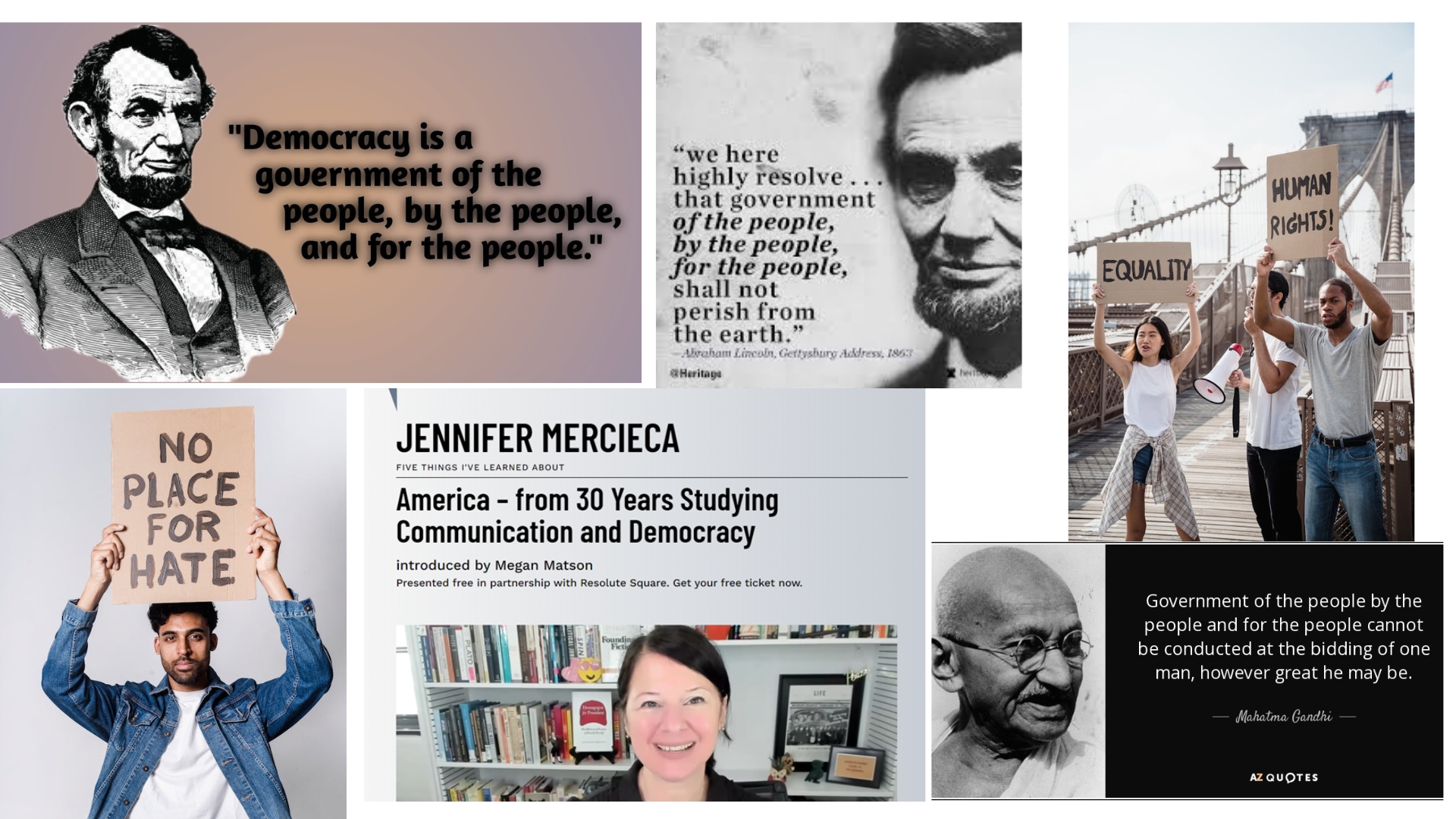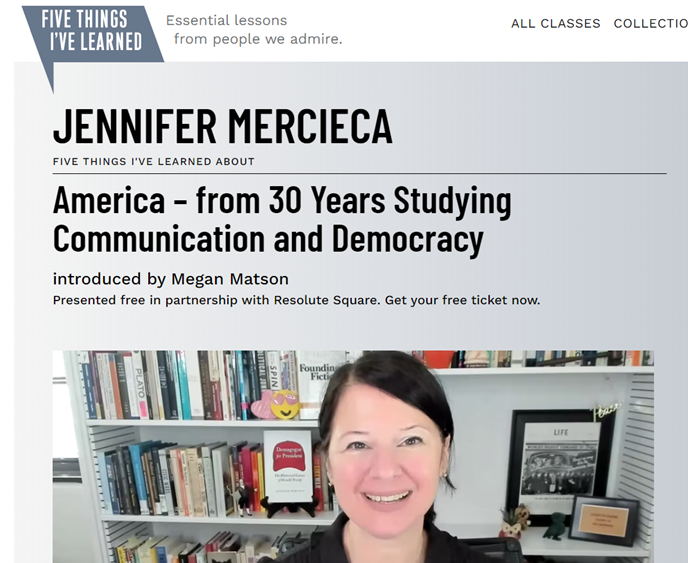Happy Independence Day in the U.S.!
In the United States, we celebrate our annual Independence Day holiday on Thursday, July 4th. I’ve always enjoyed this festive holiday, which commemorates our liberation from British rule in the mid-1700s.
However, this year, and more than ever before, I, along with millions of other U.S. citizens and citizens of countries worldwide, are increasingly concerned about the potential loss of true democracy.
This month's tip is about Etiquette and Democracy. Below is a link to a free one-hour presentation I promise is informative, eye-opening, and worth the time and effort to view, plus a reminder of the definition of democracy.
Let’s recall the definition of democracy:
From Britannica: https://www.britannica.com/topic/democracy
The people literally rule democracy. The term is derived from the Greek dēmokratia, which was coined from dēmos (“people”) and kratos (“rule”) in the middle of the 5th century BCE to denote the political systems then existing in some Greek city-states, notably Athens.
From Merriam-Webster: https://www.merriam-webster.com/dictionary/democracy
Government by the people, especially the rule of the majority, is a government in which the supreme power is vested in the people and exercised by them directly or indirectly through a system of representation usually involving periodically held free elections.
From USCIS.gov: https://www.uscis.gov/sites/default/files/document/lesson-plans/Government_and_You_handouts.pdf
The United States is a representative democracy. This means that our government is elected by citizens. Here, citizens vote for their government officials who represent the citizens’ ideas and concerns in government. Voting is one way to participate in our democracy. Citizens can also contact their officials when they want to support or change a law. Voting in an election and contacting our elected officials are two ways that Americans can participate in their democracy.
In Dr. Mercieca’s presentation, she shares five things she’s learned about the increasing weaponization of communication in our democracy, which are shown below, and her answers and ten solutions are revealed in the presentation.*
1. Why is using communication as a weapon the new normal in our public sphere?
2. Why and how weaponized communication threatens our democracy (and why that’s the point!).
3. We have two different propaganda models, neither of which helps the cause of democracy.
4. We can strengthen our democracy by using persuasion instead of propaganda.
5. Possible solutions, including ten things we can all do to rebuild our democracy and why they work.
A takeaway I learned was how true democratic communication should never be a weapon, propaganda, or threat. None are tenets of etiquette.
So please sit back and enjoy a glass of your favorite beverage (I had a glass of red wine and dinner while I watched for the hour) to gain insights from this eye-opening presentation.
Bonus: I rarely take a lot of notes on presentations. This one was a huge exception. I couldn’t write fast enough to capture all I wanted, so I replayed portions of it to get it all down accurately. I hope this cheat sheet gives you yet another reason to view the entire class:
- “A democrat is someone who is motivated by freedom, equality, social justice, and political practices that allow all citizens to share power.”
- “Weaponized communication is the strategic use of communication as an instrumental tool and as an aggressive means to gain compliance and avoid accountability. Weaponized communication is dangerous in any democracy, as it corresponds with democratic erosion.”
- “Be aware of power differences: Be even more generous with people with less power.”
- “Assume good intentions: Don’t assume the worst about what someone meant or said or didn’t say.”
- “Amplify responsible communication: You are responsible for any content you like, comment on, or share.”
- “Be accountable: Remember that you show what kind of communicator you are with every post or comment you make; take responsibility for what you communicate.
- Persuasion versus propaganda compared:
Affirms human dignity versus thinking that people are tools
Invites versus forces - There’s dialogue versus manipulation
- Democratic versus anti-democratic
Difficult vs. Easy (What does this mean?) - Democracy thrives on trust. Authoritarianism thrives on distrust.
- Think, associate, and communicate for democracy to thrive.
- Listen to learn, not just to wait for your turn to talk.
- Value the contributions of others. Appreciate that they’ve shared their information, knowledge, experience, and feelings with you because it affirms your relationship, makes you smarter, and builds trust.
*If you would like a copy of Dr. Mercieca’s Ten Solutions, as outlined in the presentation, please email me with the subject "Ten Democracy Solutions," and I’ll be happy to send it to you.
Again, here's the link to the presentation.
Also at: https://myfivethings.com/class/america-from-30-years-studying-communication-and-democracy/
Happy Practicing!
After you watch the presentation, please share your thoughts and impressions in the Comment box below...


